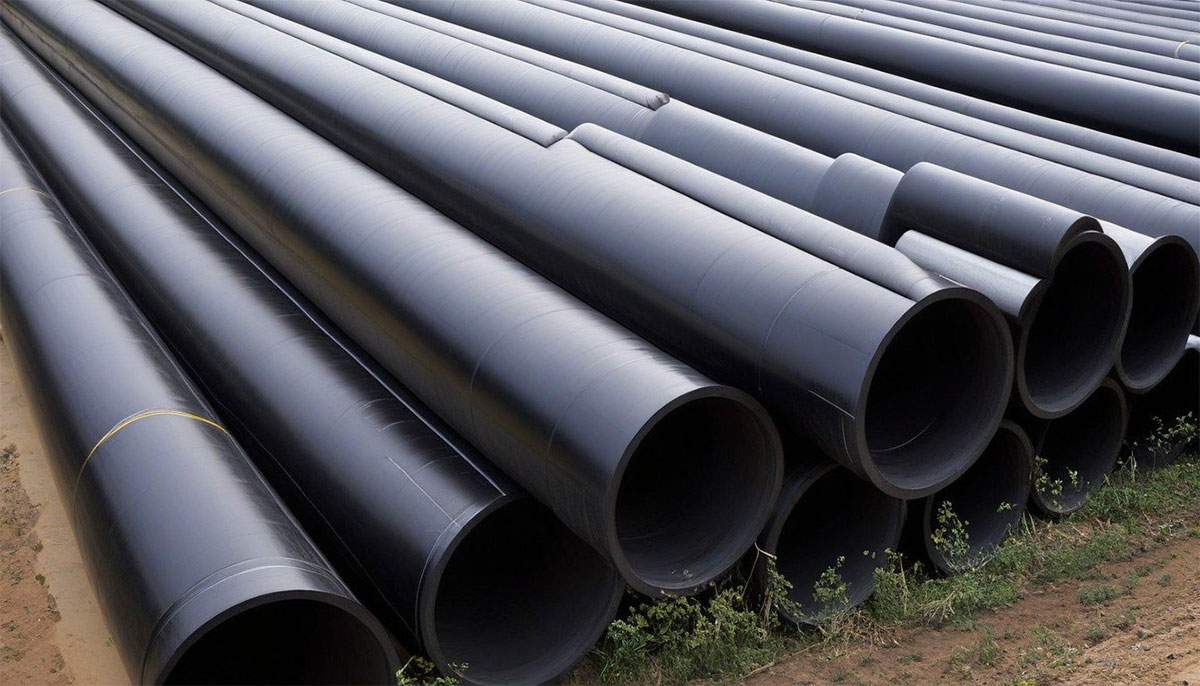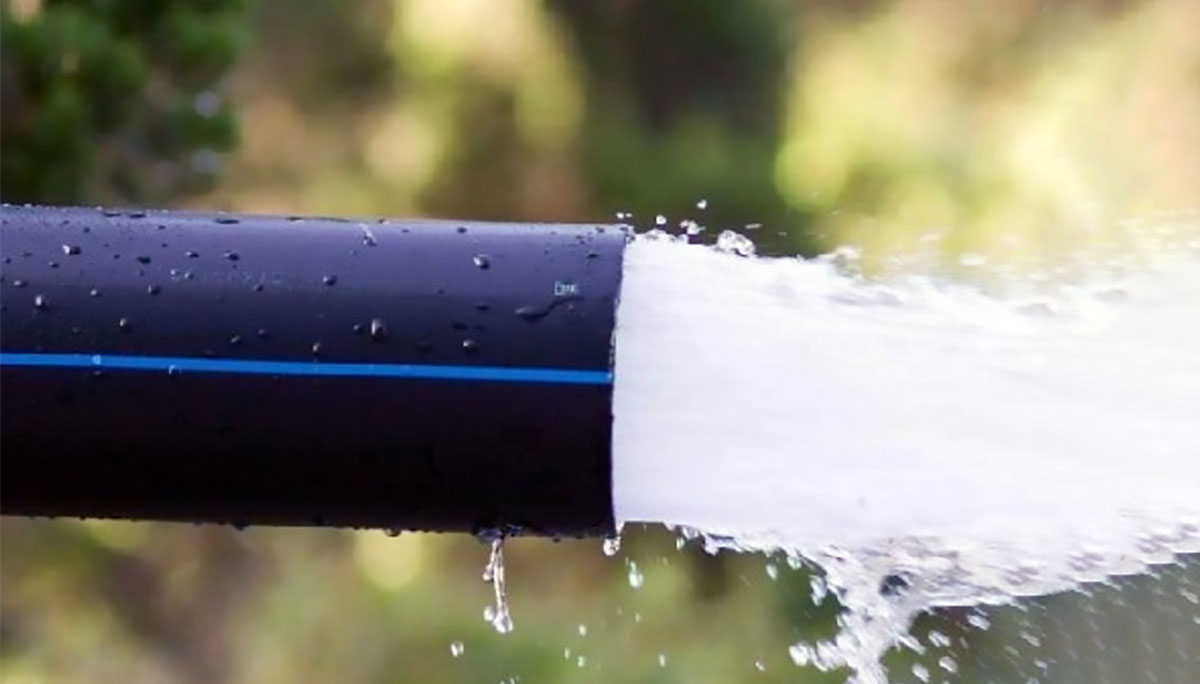
Investigating the use of polyethylene pipes for oil
Polyethylene pipes, due to their physical and chemical characteristics, are one of the most important raw materials for the construction of oil, gas and petrochemical pipelines. In the past decades, polyethylene pipes have played an essential role in the oil industry and industries related to oil and gas. In this article, we will examine the reason for the use of polyethylene pipes in the oil and gas industry.
The use of polyethylene pipes (PES) in the oil industry are:
- Transportation of crude oil: Polyethylene pipes are used for transportation of crude oil. In this case, polyethylene pipes have a high resistance to corrosion and damage due to external factors such as moisture, breakage and cracking.
- Gas transmission: Polyethylene pipes are used in gas transmission networks due to their lightness and flexibility. Also, if the steel pipes face problems due to problems such as corrosion and wear, they can be replaced with polyethylene pipes.
- Transport of chemicals: Polyethylene pipes are also used in the chemical industry to transport chemicals. These pipes are used due to their high resistance to corrosion and chemical solvents
- Water transmission: Polyethylene pipes are used in water supply networks as an alternative to steel or concrete pipes due to their high resistance to corrosion and cracking.
- Other applications: Polyethylene pipes in industries such as telecommunication, electricity, due to their flexibility and resistance, can be used as cover and protection for electric cables, optical fiber, and sensitive telecommunication cables.< /li>
In the oil industry, polyethylene pipes are used as an alternative to metal pipes due to their many advantages. For example, one of the advantages of polyethylene pipes in the oil industry is these pipes in the collection, transmission and distribution systems of natural gas and crude oil, oil refining processes, water and wastewater transmission, water treatment and sewage treatment, fire fighting systems and … are used.

Polyethylene pipes are suitable for industrial applications due to their high resistance to corrosion, impact, pressure, wear, humidity, heat and UV rays. Also, due to their light weight and high load carrying capacity, these pipes are an ideal choice for projects that need to transport materials for long distances.
Due to the extraordinary properties of polyethylene raw materials, polyethylene pipes can perform well in situations where metal pipes may fail and deteriorate. Also, due to the simplicity of weight and structure, the installation, transportation and installation of polyethylene pipes are easily done and require less cost and time.
One of the other advantages of using polyethylene pipes in the oil industry is the creation of lower costs for repairs and maintenance. These pipes resist for a long time and the possibility of their failure and repair is less. Also, the need to replace pipes due to corrosion is reduced, which ultimately saves time and money.
In general, the use of polyethylene pipes in the oil industry is increasing due to the numerous advantages they have.
One of the other uses of polyethylene pipes in the oil industry is to transfer fuel, gas and water. In the oil and gas industry, polyethylene pipes are used as high pressure transmission lines, natural gas and other industrial gases, as well as crude oil and other product material transmission lines. Also, polyethylene pipes are used to transport industrial, domestic and drinking water.
The use of polyethylene pipes in the oil, gas and water industries, in addition to saving money and time, reduces the risk of pollution and damage to the environment. Due to its high resistance to temperature and pressure changes, polyethylene pipes can perform well in environments with harsh and different weather conditions.
Thus, polyethylene pipes are preferred due to their numerous advantages, including corrosion resistance, reduced maintenance and repair costs, less installation time, cost and time savings, and reduced risks. They are known to the environment as a suitable alternative to metal pipes in the oil, gas and water industries.
In the oil industry, polyethylene pipes are used to transport liquids and gases in harsh environments. Due to advantages such as lightness, flexibility, resistance to corrosion, resistance to pressure, resistance to impact and low damage, resistance to bursting and rusting, as well as no need for maintenance and subsequent repairs, these pipes are used for transporting materials in environments with harsh conditions. And they are unstable, they are used.
The use of polyethylene pipes in the oil industry, especially in stages such as steel Raj seeks to transfer, refine and enhance natural gas, oil and refined products to deliver greater productivity and reduce costs and risks. These pipes are generally used in high pressure facilities and environments that require fast and safe transfer of materials.
In the oil industry, polyethylene pipes have a longer service life than metal pipes due to their high resistance to corrosion and other damage factors. Also, due to their lightness and greater flexibility, they require less transportation equipment and can be used in areas where access to heavy equipment is difficult.
The use of polyethylene pipes in the oil industry is suitable due to its high resistance to various environmental conditions, such as high and low temperatures, humidity, mechanical stresses, pressure, ground movements and earthquakes. Is. Also, these pipes have a high resistance to solvents and chemicals that are used in the oil industry.
Using polyethylene pipes in the oil industry is also effective in reducing costs. Due to their lower weight and higher resistance to failure, they require less replacement and maintenance than metal pipes. Also, the need for subsequent repairs and maintenance is less, which reduces maintenance costs.
In general, the use of polyethylene pipes in the oil industry is due to advantages such as high resistance to corrosion and failure, lightness and flexibility, resistance to various environmental conditions, cost reduction and Need to replace and maintain less, they are used.




